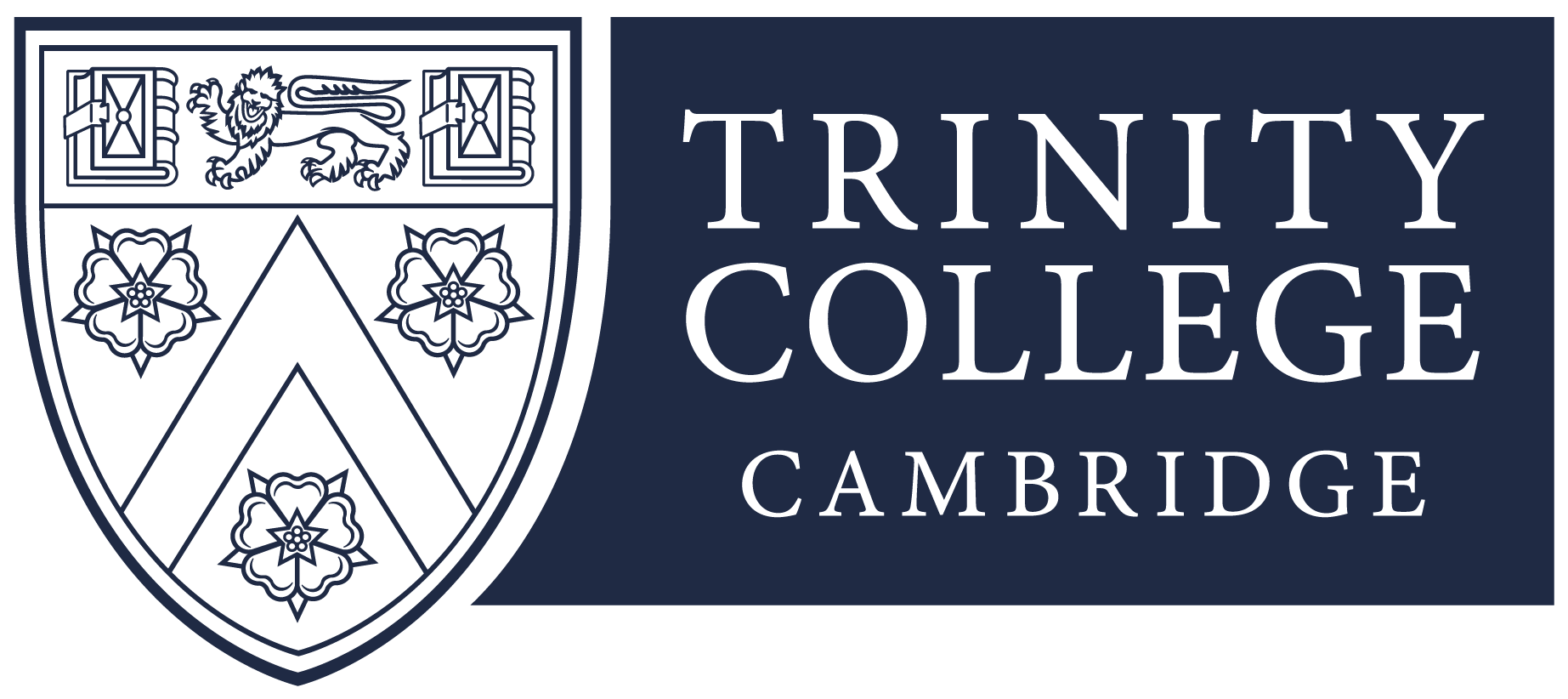A Trinity trio
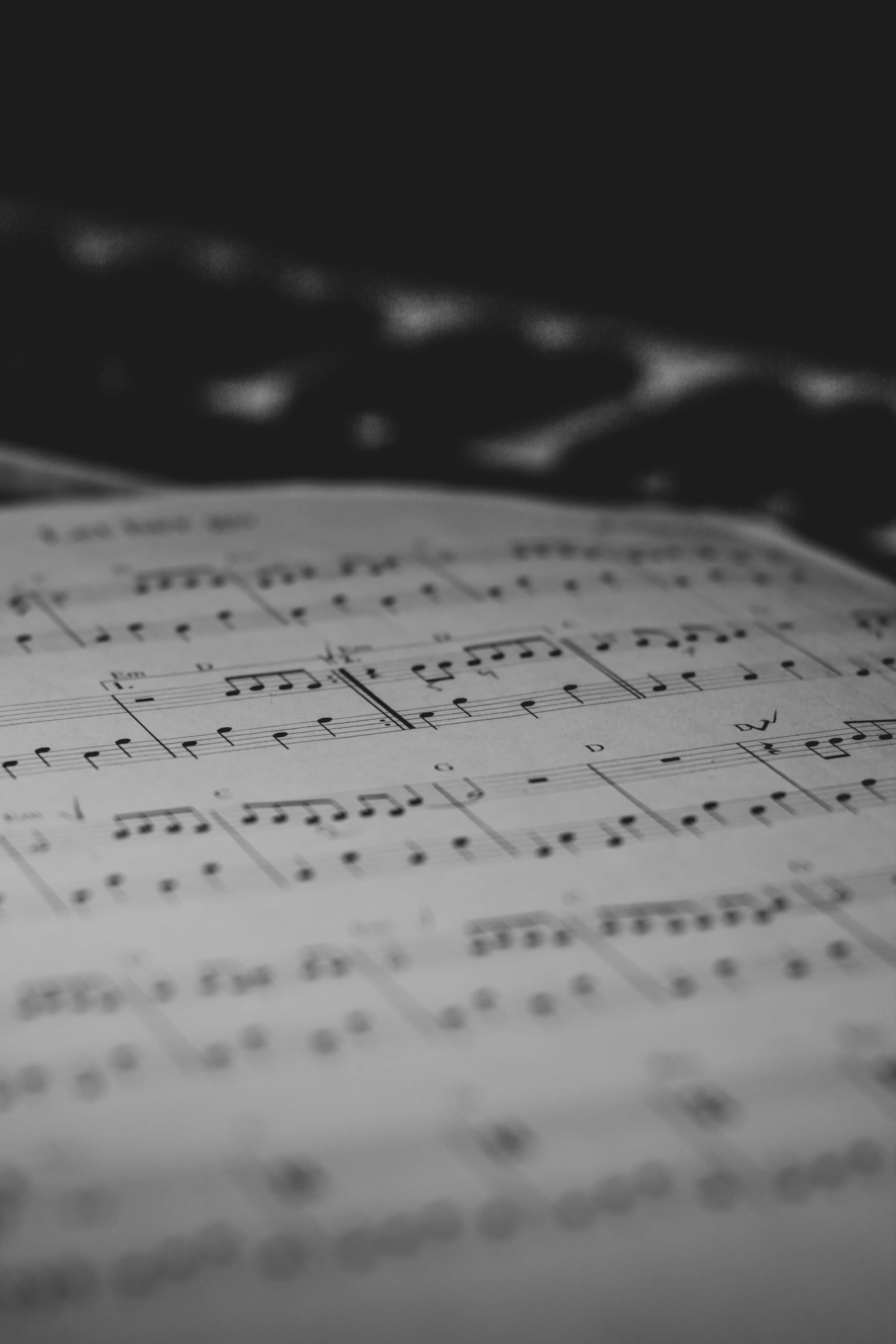
Three Trinity musicians share what sparked their passions, discuss their memorable moments and creative achievements, and preview forthcoming projects.
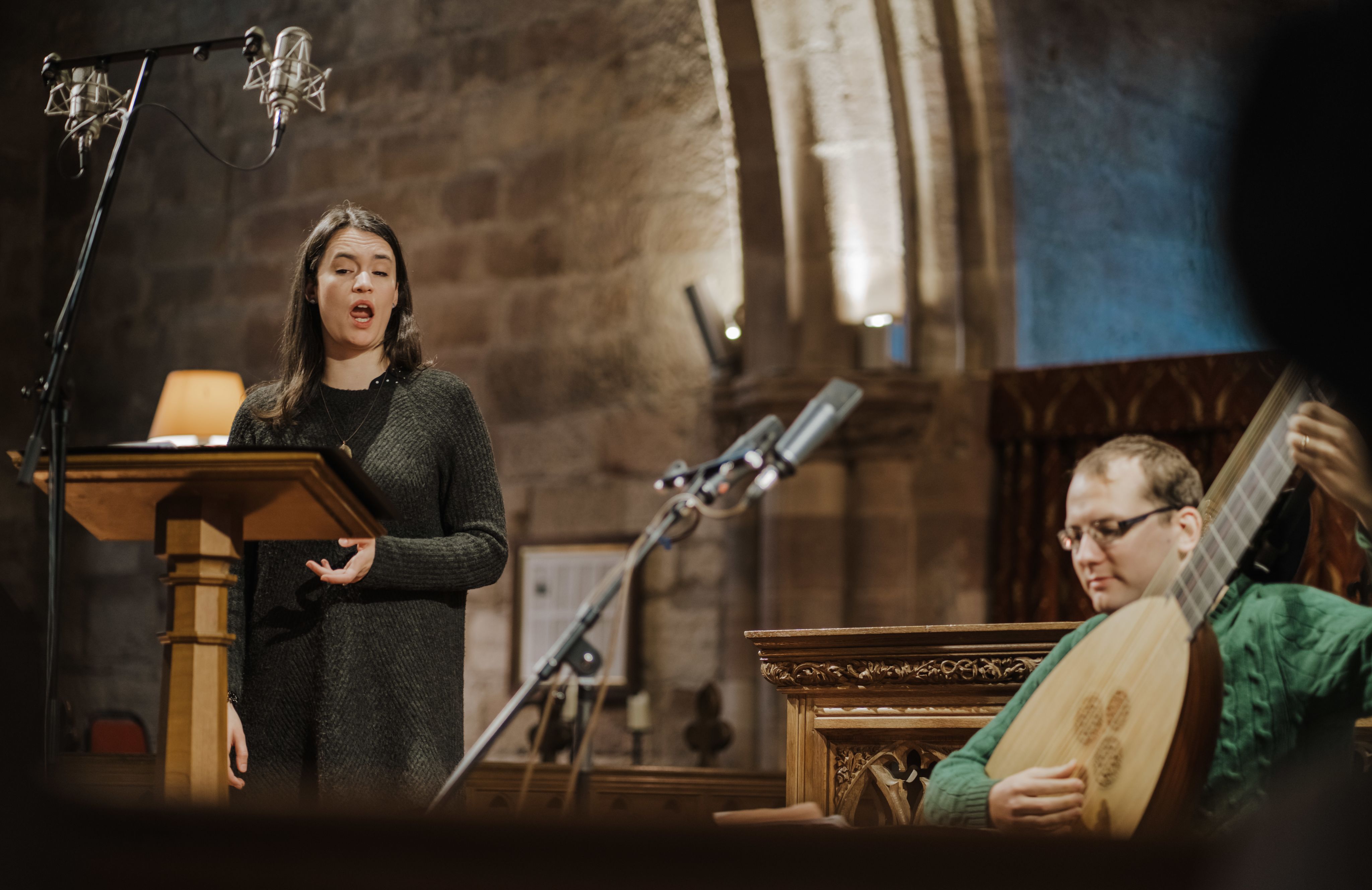
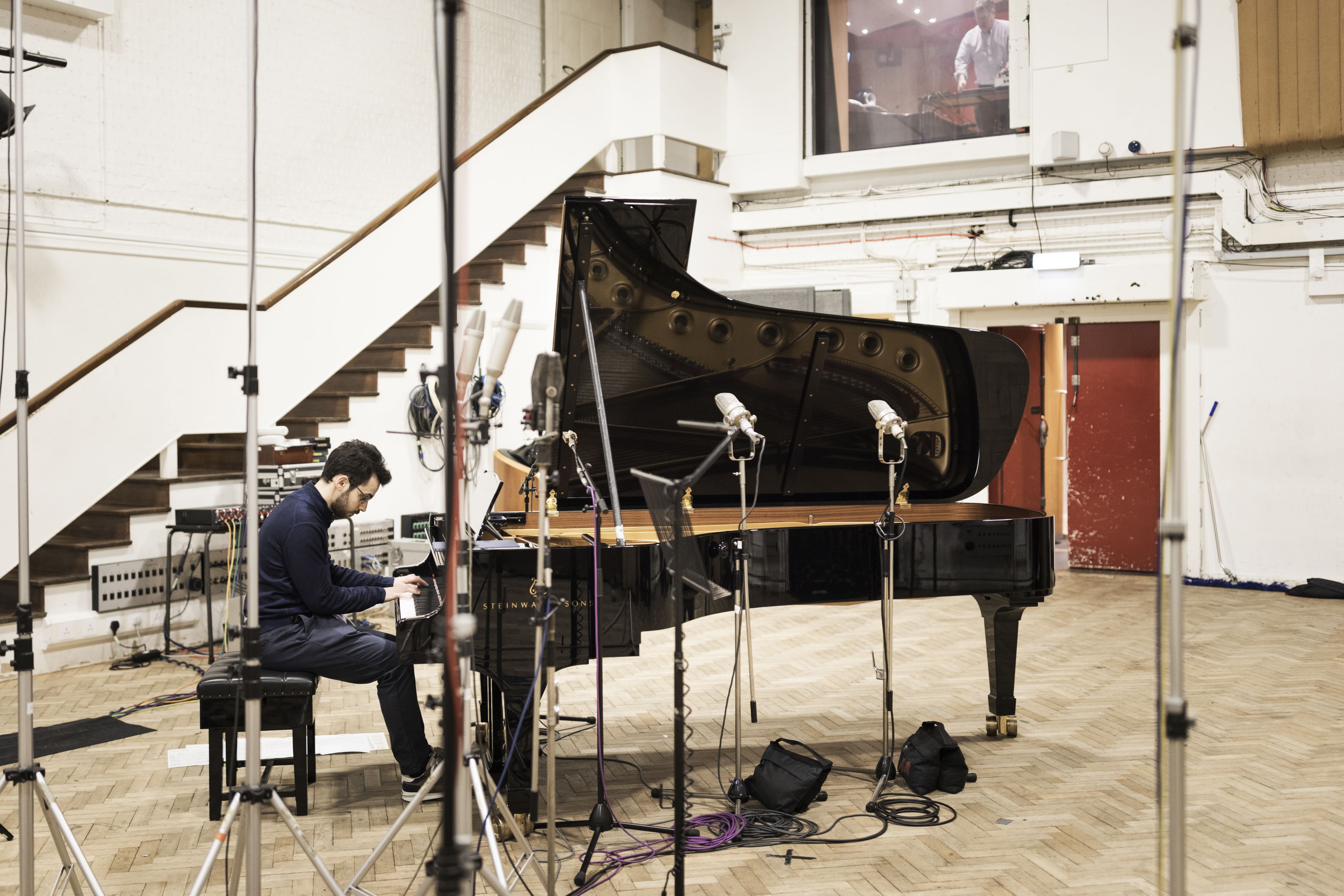
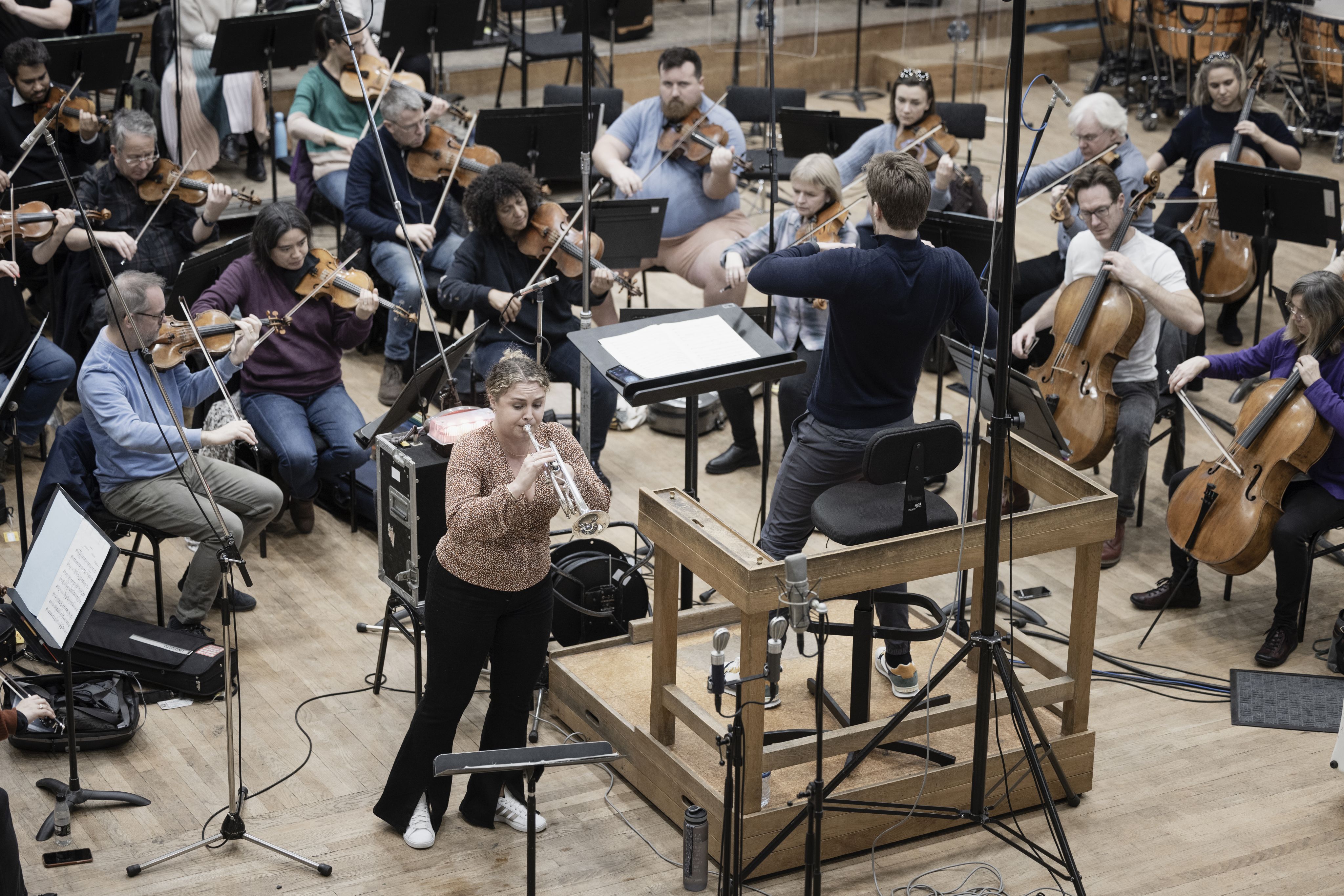
Helen Charlston (2011, Music)
Mezzo-soprano
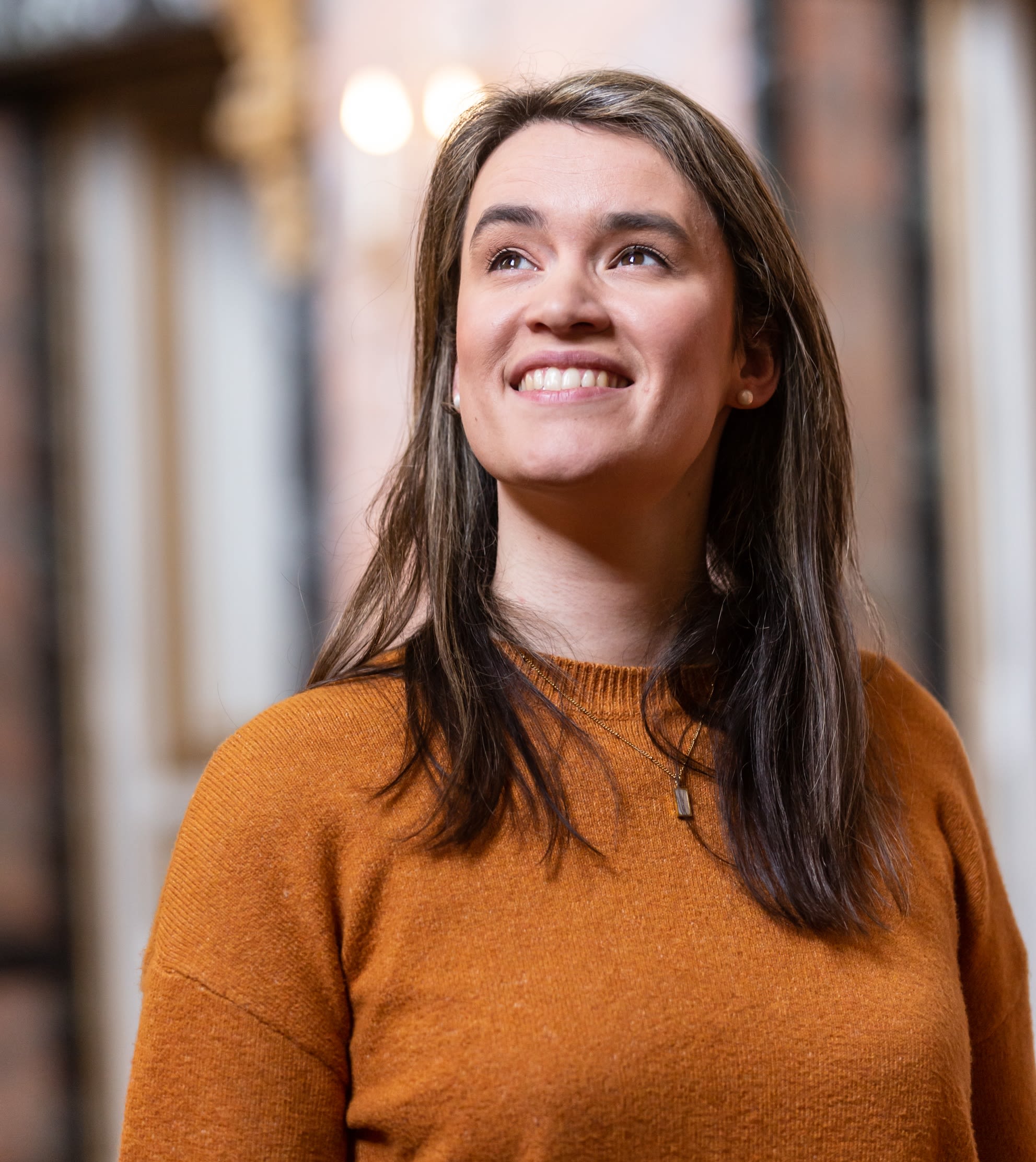
© Oscar Ortega.
© Oscar Ortega.
Q What sparked your interest in music? Was there a person or piece of music that inspired you?
I have sung for as long as I can remember. I was fortunate to grow up in a household full of music – my father is also a professional musician, so I was used to spending time at concerts or listening to him rehearsing. I was also very fortunate to be born in the right decade that meant, despite my gender, I could be a chorister at my local cathedral: St Albans. I was a chorister from the age of 7-14, and it was here that I became sure that singing needed to be something that remained in my life forever.
Q What was the best thing about studying Music at Cambridge and the most memorable moment?
It was a very exciting and creative cohort. The extreme variety of interests of people on my degree and around the University making music is one of the special things about Cambridge. There is space to try anything you want, and to make music to an extraordinarily high standard. Singing in the Trinity Choir was a huge part of that for me – expectations were high and the music we made together has stayed with me for a long time. I still work with many people that I studied with, and I am continually inspired by their creativity and development.
Q Describe your path since leaving Trinity.
After graduating in 2014, I worked in the Trinity Chapel and Music Office for a year, which was a wonderful opportunity to bridge the gap between my degree and working out what steps to take to get into the music profession. I did lots of auditions, for as many opportunities as I could find, and began to build up a network. My first big solo performance came that year, singing Bach’s Matthew Passion with the Gabrieli Consort conducted by Paul McCreesh at the Aix Easter Festival.
I won the London Handel Competition in 2018, the song prize in the 2021 Kathleen Ferrier Competition and was a laureate of Jardin des Voix in 2021-2022, a young artists’ programme with Les Arts Florissants, and was a BBC New Generation Artist (2021-2023). Concerts have taken me to Australia, New Zealand, USA, Canada, Japan, and South Korea; I made my debut at the BBC Proms last year; sang the title role in Dido and Aeneas at the Royal Opera in Versailles; and the Sorceress in the same opera at The Grange Festival. I’ve just been working at the Opera National de Paris, covering the title role in Charpentier’s Médée.
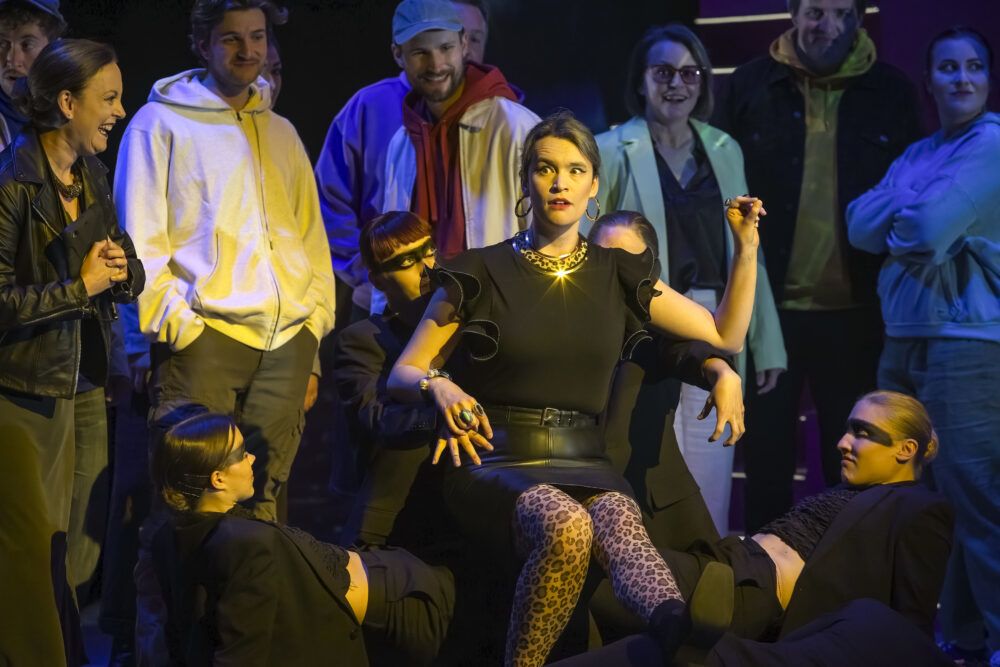
Purcell: Dido and Aeneas - Helen Charlston - The Grange Festival © Craig Fuller.
Purcell: Dido and Aeneas - Helen Charlston - The Grange Festival © Craig Fuller.
Every week and month is different to the last, but the common thread is wonderful music, often in very beautiful places, so I count myself really lucky!
Q What’s the piece of work or performance you’re most proud of and why?
I recently won both a Gramophone Award and BBC Music Magazine Vocal Award for my solo album Battle Cry: She Speaks. It’s a programme centred around 17th century music – particularly by Barbara Strozzi and Henry Purcell – that I absolutely love to perform with my duo partner, lutenist Toby Carr. Alongside this old music, we commissioned Owain Park (Trinity, 2013) to write a new set of songs for this pairing. It was a relatively unusual project, as this combination of voice and lute doesn’t often have new music written for it. Owain set new lyrics by Georgia Way (also a Trinitarian, 2011!) to music, so for me it was a very special project, working with people I had met as a student and seen grow over the years.
This was the first project I put together for myself from scratch, and I am really proud of all we achieved. It says a lot about who I am as a musician, and I’m so glad people have loved it as much as I do.
Q What forthcoming projects are you excited about?
Next summer I will make a house and role debut at the Gran Teatre del Liceu in Barcelona singing Sesto in Handel’s Giuilio Cesare, directed by Calixto Bieito, conducted by William Christie. I’m also recording my next solo album soon and can’t wait for that find its way into the world in 2025.
Q If you could collaborate with any artist past or present, wo would it be and why?
I wish I could have been a fly on the wall for rehearsals and pretty much every performance of Peter Sellars’ production of Handel’s Theodora with Lorraine Hunt Lieberson singing Irene at Glyndebourne in 1996. She was an extraordinary artist, completely whole and genuine in every performance. I’ve watched her on video, listened to audio recordings and learnt so much from her singing, but I am so sad I never met or heard her live before her untimely death in 2006.
Q What’s the biggest challenge facing young musicians looking to enter the industry, and what advice would you give to those aspiring to follow in your footsteps?
Trust your instincts, musical and otherwise. We spend so much time learning technique, which is vital to give us the freedom to fly as musicians, but it must be paired with trusting yourself and your response to the music. You have something to say as a performer so trust that you know how to say it. Also, nothing is off bounds: listen to, watch, and absorb all music that you can. You never know what may spark your next project.
Aron Goldin (2016, English)
Pianist and writer
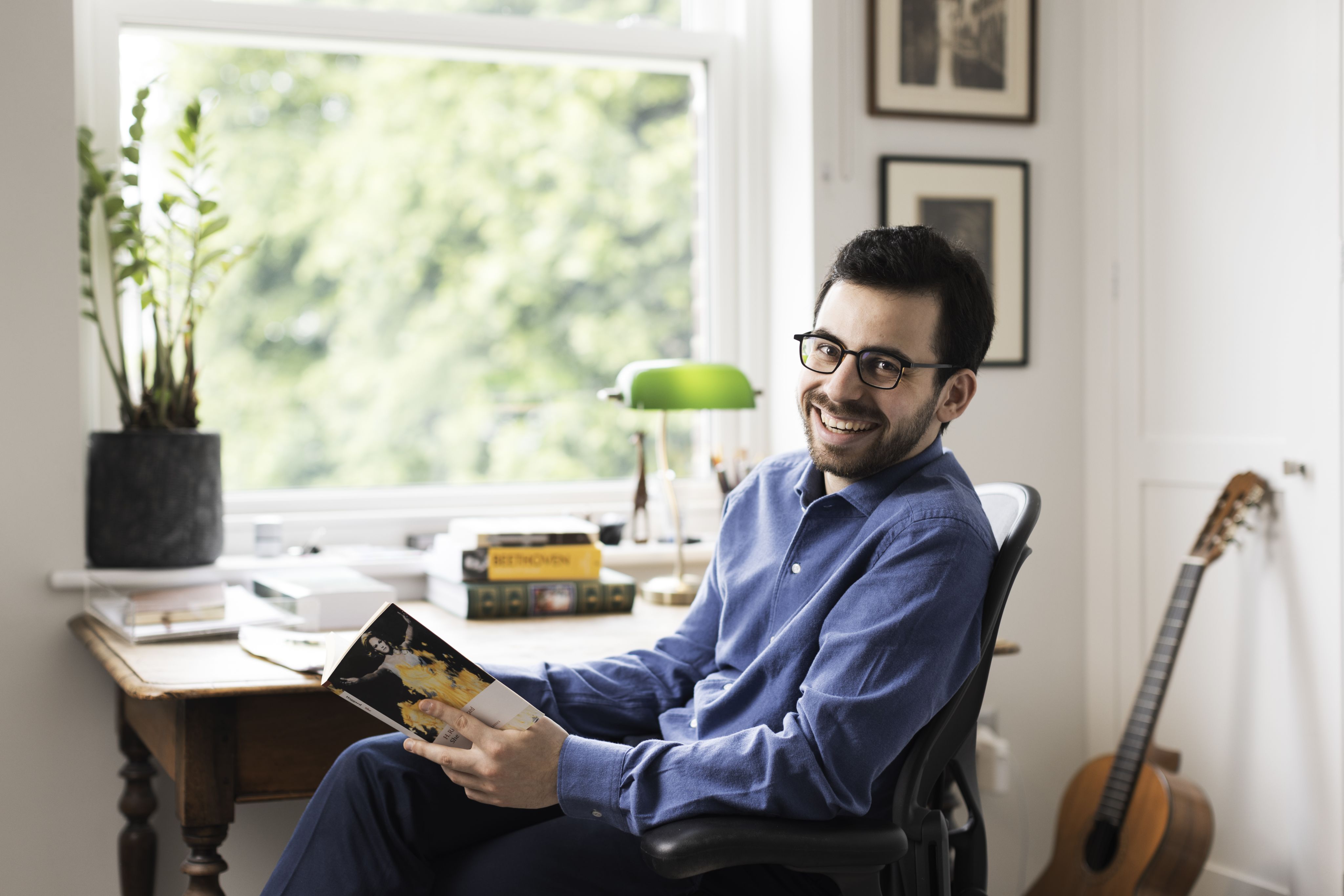
© Ben Ealovega.
© Ben Ealovega.
Q What sparked your interest in music? Was there a person or piece of music that inspired you?
My father’s family were immigrants from Russia and Lithuania. They left their homes behind but kept their love of books and music. As a child I would sight-read for hours at the piano - the collected works of great composers - and learnt to play guitar by ear and write folk songs. I would fall asleep listening to Keith Jarrett’s Köln Concert, Rubinstein’s recordings of Chopin’s Nocturnes, Schiff’s recordings of Bach and Maria Callas singing Verdi or Puccini. It was a childhood filled with music.
Q What was the best thing about studying at Cambridge and the music scene, and the most memorable moment?
When I wasn’t reading (or writing my own stories) I was giving concerts with other musicians. There are endless opportunities at Cambridge to perform with superb instrumentalists and singers. Trinity gave me a grant to translate a play I had written into Russian and take it to Moscow and St. Petersburg. A memorable moment was doing a read-through at the Maly Theatre, Moscow, when its artistic director pointed out I was sitting on a chaise longue that was a favourite of Joseph Goebbels – taken from his Berlin office by the Russian army in 1945!
Q Describe your path since leaving Trinity.
I studied piano performance at the Royal Academy of Music in London. I wanted the conservatoire experience and to take my playing to a professional standard. Whilst I enjoyed live performance at venues such as Wigmore Hall, I found I was happiest in the recording studio. Alongside music, I worked as a freelance writer and wrote screenplays for film and producers, progressing from speculative to commissioned scripts. I also completed my first novel, securing a two-book deal with a publisher.
Q What’s the piece of work or performance you’re most proud of and why?
My first album Homelands for the Rubicon Classics label. It was with the magnificent tenor Ian Bostridge and a great ensemble of singers. We performed live on BBC Radio 3 and went into the UK Classical Charts Top 10. A concert of the album with actor Simon Russell Beale raised large sums to help schoolgirls who had been displaced by the war in Afghanistan. Recording with Ian was a huge privilege and I love that in addition to making a beautiful album, our music had a humanitarian impact.
Q What forthcoming projects are you excited about?
My debut novel, Murder in Constantinople, a murder mystery which will be published by Pushkin Press in Autumn 2024. The release of my second album, with soprano Cecilia Rangwanasha, which we recorded at Abbey Road Studios. And the final polish of my current screenplay, an action-adventure for a studio - a first foray into bigger budget movies.
Q If you could collaborate with any artist past or present, who would it be and why?
Sam Mendes. I admire the breadth and variety of his work in film and theatre. The Lehman Trilogy, for example, was an ingenious piece of stagecraft, whilst 1917 was a virtuosic piece of filmmaking. He brings an auteur's taste to projects that have commercial appeal - a combination that I seek to emulate in my work as a writer. In that respect he is a major source of creative inspiration.
Q What’s the biggest challenge facing young writers and musicians, and what advice would you give to those aspiring to follow in your footsteps?
There will always be setbacks as you start your career and it is very important not to allow yourself to be daunted by them. Key to success is being resourceful and tenacious in finding solutions to whatever problems arise on the journey. The most essential part of this is having belief in yourself and in the value and integrity of the work you are creating.
www.rubiconclassics.com/artist/aron-goldin/
Matilda Lloyd (2014, Music)
Trumpet soloist
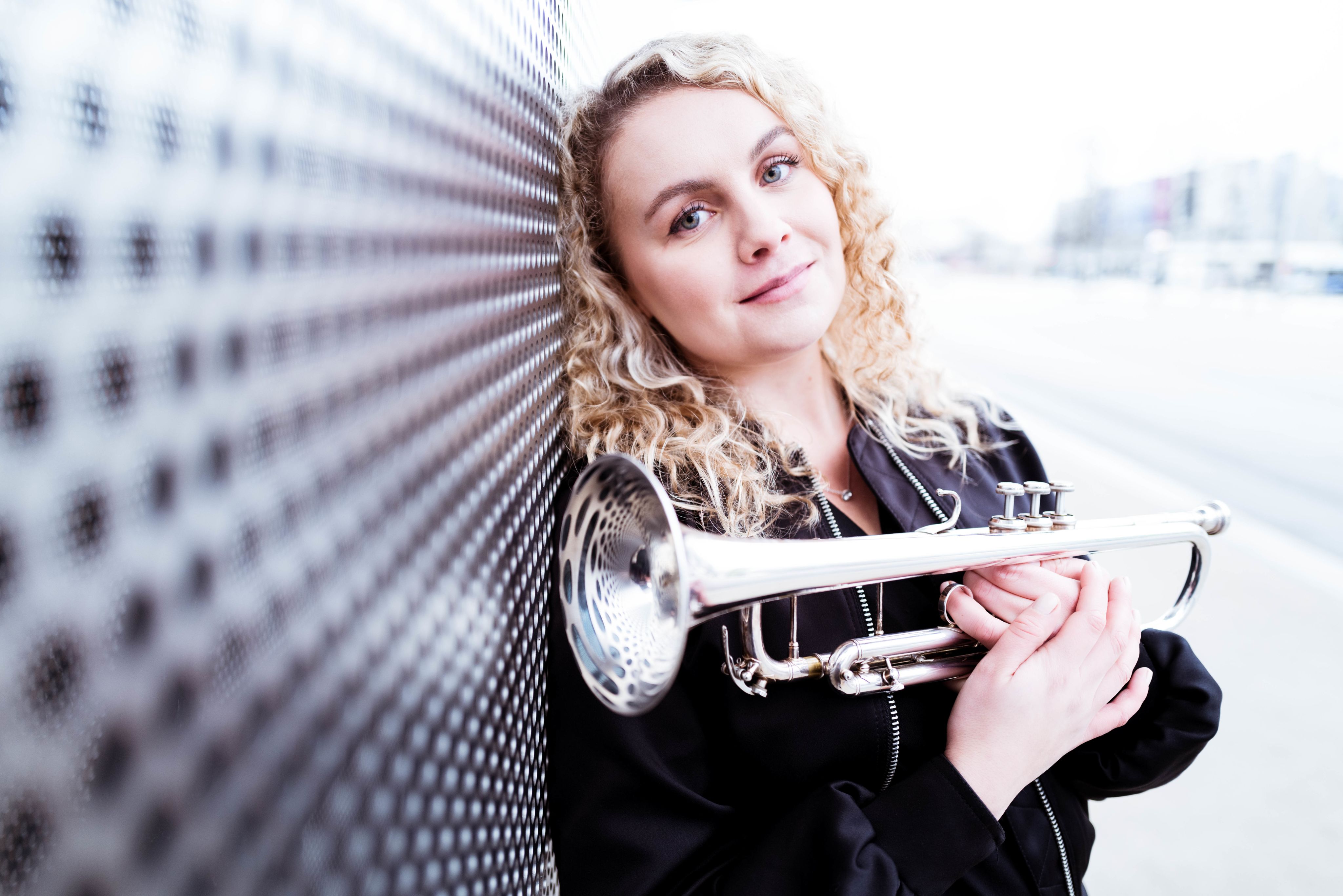
© Geoffrey Schied.
© Geoffrey Schied.
Q What sparked your interest in music? Was there a person or piece of music that inspired you?
I grew up in a very musical household - my Mum is a piano player, teacher, and accompanist - so I don’t have a memory of my first experience with music as it was always around! She started teaching me the basics on piano when I was around five years old. When I was eight years old, I was rummaging around in the cupboards at home, looking for a new toy to play with, and stumbled across my Dad’s old trumpet. He had played in school, but not since, so it was just gathering dust. I was instantly attracted to the shiny instrument and could make a decent sound on it - so that’s where the story starts!
Q What was the best thing about studying Music at Cambridge and the most memorable moment?
My favourite thing was discovering and learning about styles of music that were completely new to me. As an instrumentalist, I already knew a lot of symphonic orchestral repertoire, but I fell in love with early vocal music and its development from Gregorian Chant up to four-part polyphony. I took as many papers as I could on this subject, spending hours learning how to read ancient music in beautiful old codices and transcribing them into modern day notation. My memorable moment was the 24-hour fugue paper we undertook in our first year; I was awake almost all night, fuelled by an assortment of sweets, had a complete panic with the printer in the Trinity Library and had to run to the Music Faculty in the rain, in my pyjamas and flipflops, to get it in on time!
Q Describe your path since leaving Trinity.
I moved to London to study at the Royal Academy of Music. I focused on my goal of becoming a trumpet soloist: entering competitions, performing as many solo concerts as possible, learning new repertoire and studying with top soloists around Europe. One of these was Håkan Hardenberger, who became my mentor and professor in Malmö, Sweden after I had finished at the Academy. During these years, I recorded my debut album with piano, Direct Message, and participated in many Young Artist schemes, which helped me secure management with Hazard Chase (based in Cambridge).
Unfortunately, when Covid hit in 2020, I was faced with no concerts, multiple lockdowns, and the dissolution of Hazard Chase. I was very uncertain about my future in the world of classical music, and for a couple of months I had a complete identity and confidence crisis. I finally decided that I would recommit myself 100% to becoming a trumpet soloist, quitting my part-time marketing job, and setting myself targets over the next 18 months to help me get back on track. These included finding new management and recording my opera arias album Casta Diva with an orchestra. We are now three years down the line and I’m ecstatic that these projects have come into fruition and I’m still here!
Q What’s the piece of work or performance you’re most proud of and why?
My recording of the Weinberg Trumpet Concerto, which will be released on Chandos Records this November. It was an incredible experience to record this behemoth of a work with the London Symphony Orchestra and Lee Reynolds at the end of last year and I can’t wait for everyone to hear it!
Q What forthcoming projects are you excited about?
I couldn’t be more excited about the first trumpet concerto written for me! Robin Haigh has written an exhilarating tour-de-force called LUCK and I will perform the world premiere at the Aldeburgh Festival on 15 June with the Britten Sinfonia and Jessica Cottis. It will also be recorded for broadcast on Radio 3; you won’t have heard anything written for trumpet quite like this before.
Q If you could collaborate with any artist past or present, who would it be and why?
Conductor Gianandrea Noseda. As a member of the European Union Youth Orchestra during my years at Trinity, I spent two summers touring with him performing some incredible repertoire (including Mahler’s 5th Symphony) and would love to work with him again, but now on one of my favourite concertos.
Q What’s the biggest challenge facing young musicians looking to enter the industry, and what advice would you give to those aspiring to follow in your footsteps?
How much time have you got? There are so many challenges, not least all the funding cuts, but I think it’s important to remain positive and committed. My advice would be to work out exactly what kind of career you’d like to have and look at the steps you need to get there. Also, ask people for help! Find people that are further along that path than you and ask them for advice and input. I used to be so afraid to reach out to those I admired, but I’ve learnt that they are often flattered to be asked and usually delighted to give advice.
This alumni interview is included in the latest edition of The Fountain magazine - Issue 33 Summer 2024.
